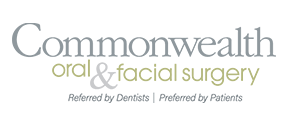15 Jan Facial Trauma: Soft Tissue Injuries
 Broken bones may be the first injury that comes to mind when you think about facial trauma, but the soft tissues of your mouth can be damaged as well. Furthermore, it’s just as important to repair damage to soft injuries following facial trauma to avoid long-term effects on your smile’s appearance and your oral health.
Broken bones may be the first injury that comes to mind when you think about facial trauma, but the soft tissues of your mouth can be damaged as well. Furthermore, it’s just as important to repair damage to soft injuries following facial trauma to avoid long-term effects on your smile’s appearance and your oral health.
The types of injuries that may require facial surgery include lacerations to the face, lips or soft tissues inside of the mouth. These issues may need to be addressed in addition to repairing any broken bones or knocked out teeth.
An oral surgeon is trained to address all of the injuries that can arise following a facial trauma and to operate in emergencies, as well. With the soft tissues, care must be taken with any sutures to minimize scarring in highly visible areas, such as the lips or gums.
After addressing the immediate injuries in the aftermath of the trauma, an oral surgeon can continue to follow your case and plan for any long-term interventions that might be needed. The surgeons can also coordinate care with any other specialists who may need to be involved, such as periodontists and orthodontists, as well as the patient’s general dentist.
Patients who suffer any type of facial injuries that require surgery should closely follow their surgeon’s post-operative instructions to reduce their risk of complications and achieve the desired treatment outcomes. Be sure to attend all follow-up appointments, as well.
Facial trauma can occur in a wide variety of settings, including the home, workplace, cars and recreational sites. In cases of emergencies, it’s important to get adequate care to preserve your oral health.
We truly hope that you never suffer a facial injury, but if you do, you can call on our qualified and experienced practitioners for the appropriate treatment. We can also advise you on the measures you can take to reduce your risk of such injuries! Contact any of our convenient locations to learn more about preventive measures, as well as the qualifications of our providers.

